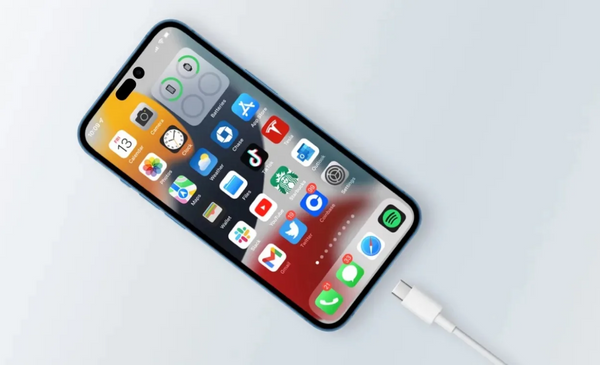The date that Apple must make the transition from Lightning to USB-C for its iPhone line has been formally established by the European Parliament.
The EU has taken a further step toward enforcing this mandate by publishing a new order in the Official Journal. With its publication, the EU has established a deadline of December28, 2024 for new phones to utilise USB-C.
It is official ‼️#CommonCharger published in the 🇪🇺 Official Journal. The rules will enter into force before the end of the year & start to apply before the end of 2024! @alexagiussaliba @EP_SingleMarket Reminder on what this means ➡️https://t.co/LjzLs56URf https://t.co/Rh8PHTG0KCDecember 8, 2022
Despite the European Parliament’s publication of this new law, individuals continue to play a waiting game. The new regulation will not be fully implemented for another 20 days. The 27 separate EU member states have approximately 24 months to make this into national law.
When the new regulation was approved, it was expected to mandate USB-C ports on all devices sold in the EU by the end of 2024. With the vast majority of smartphones now using USB-C chargers, all eyes were on Apple’s iPhone as it was the last major brand to stick with the antiquated lightning connector.
A USB-C connector is required in all newly released mobile devices in order to charge by cable at speeds of up to 100W, as mandated by parliament. When it comes to charging your Apple smartphone, the EU saw this new law as a method to eliminate the “lock-in” effect, which occurs when you are forced to use the company’s proprietary technology.
Apple’s VP of Marketing Greg Joswiak affirmed the iPhone’s continued development a couple of weeks after the European Parliament agreed to move through with the new regulation. Even said, they were not pleased to see the government appear to be getting overly “prescriptive,” or insisting that a tech firm do anything. Although, because it won’t be necessary for the 2024 model, it’s unclear when the iPhone will make the changeover; however, speculations suggest the firm may offer a USB-C iPhone sooner. It’s also unclear if Apple wants to apply this shift in the U.S., where politicians are advocating similar pricing rules.
By eliminating the need for people to constantly swap out their cables, the European Union expects to save its residents almost €250 million annually. The EU’s projected 11,000 metric tonnes of e-waste annually is another source of concern.
After mobile devices are required to switch to USB-C charging by the end of 2024, laptops will follow suit by 2026.

Subtly charming pop culture geek. Amateur analyst. Freelance tv buff. Coffee lover
